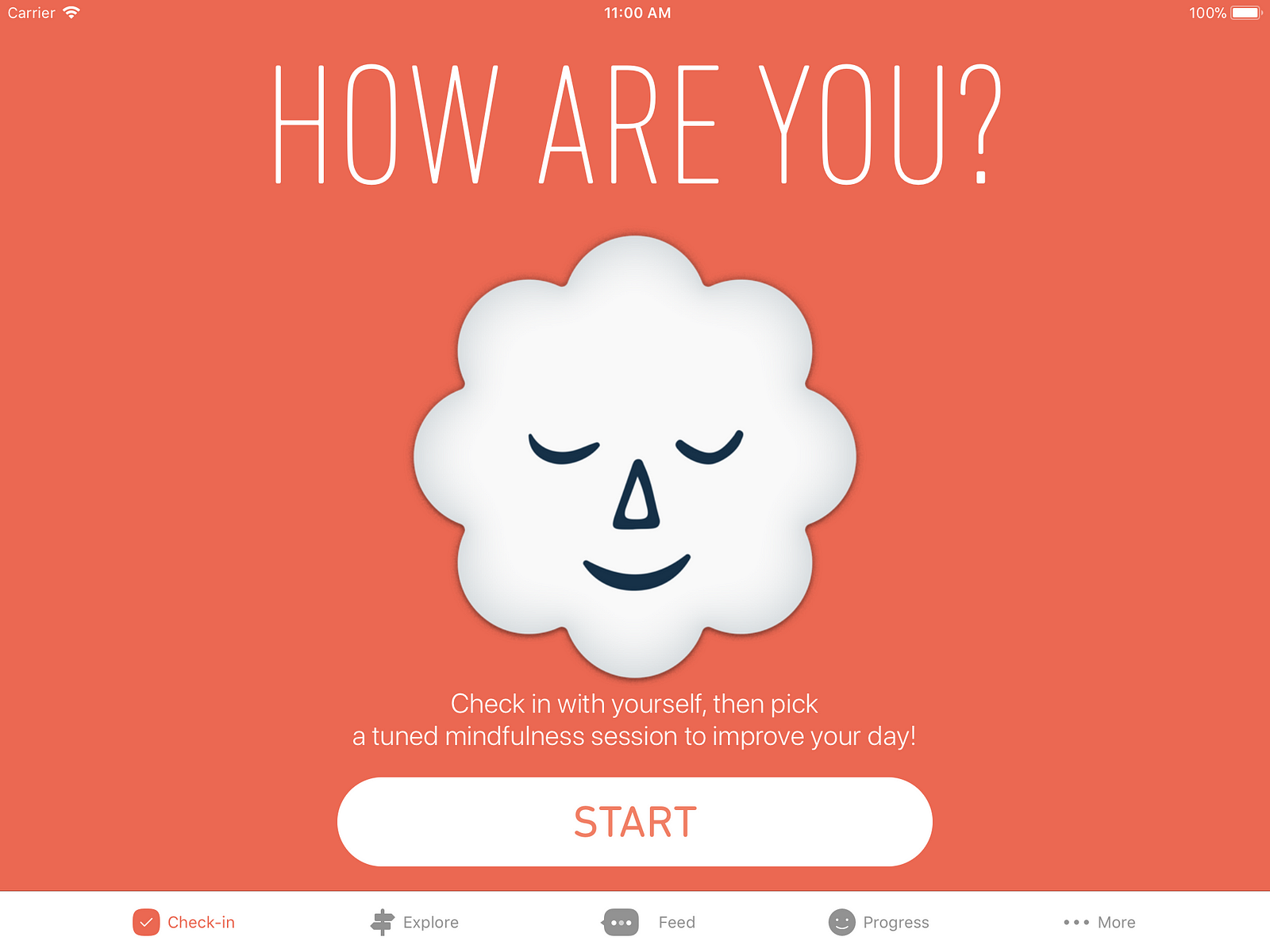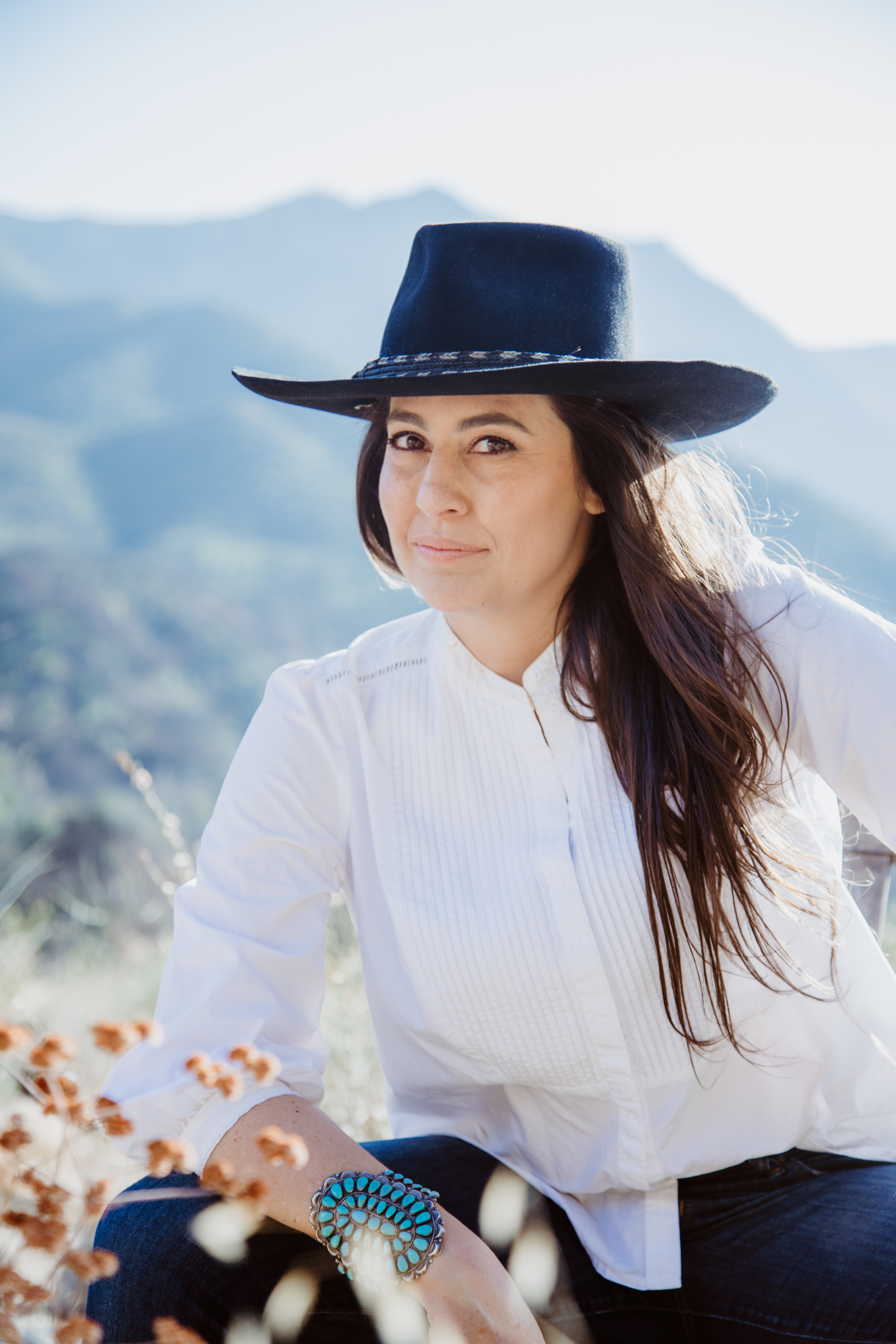As a part of my series about “Mental Health Champions” helping to normalize the focus on mental wellness, I had the pleasure to interviewJulie Campistron, mental health advocate and co-founder of Stop, Breathe & Think, a personalized emotional wellness app that helps people build the emotional strength and confidence to navigate life’s ups and downs.
Thank you so much for joining us! Can you tell us the “backstory” about what brought you to this specific career path?
I spent most of my career in tech, as an executive at Yahoo! and Demand Media. After 8 years at Demand, where I was running a large P&L and team and had gone through the craziness of an IPO and many ups and downs, I was pretty burnt out. I had turned 40, suffered a recent miscarriage and one of my mentors, Dave Goldberg, had just passed away at age 48. I was ready for a reset. So I took a few months to regroup, and decided that whatever I would do next needed to be something where I felt I was making a difference, and using my time for good. When my now co-founder Jamie reached out to me to partner with her and help take Stop, Breathe & Think to the next level, it was the perfect fit, and I jumped.
According to Mental Health America’s report,over 44 million Americans have a mental health condition. Yet there’s still a stigma about mental illness. Can you share a few reasons you think this is so?
There is still this false image that a “strong” person doesn’t suffer breakdowns. That being mentally strong means never losing it. Somehow people think that you’re in one camp (the strong) or another (the weak). But the reality is that mental strength goes hand in hand with acknowledging our emotions, and their fluctuations. Emotional strength requires work that starts with acknowledging our vulnerability. The less people let themselves “feel” the more those feelings will come back in a violent and unexpected way later. There is also a belief that your mental illness defines you, that somehow it “is” you. But we don’t think that about physical illnesses. Thankfully the stigmas around mental health are clearly breaking, in large part thanks to everyone who is speaking up, sharing their experience, being real and open about the challenges they have faced, or still face.
Can you tell our readers about how you are helping to de-stigmatize the focus on mental wellness?
With teen suicide doubling in the last decade, and stress, anxiety and depression on the rise with kids and teens, there is no question that the emotional health crisis of younger generations has become a critical issue for our society to overcome. At the same time, this younger generation is more open and willing to identify itself as suffering from mental health issues and do something about it. Jamie has been developing mindfulness curriculum and workshops for young people for the last two decades, and has been a trailblazer when it comes to de-stigmatizing mental health and developing ways for youth to connect with their emotional wellbeing and develop healthy habits around it. Today, our mission at Stop, Breathe & Think is to develop a platform that is truly accessible and engaging for kids, teens and young adults. We innovate with content formats and a variety of research based activities designed specifically for those age groups. We focus on bringing the experience to them through our apps but also through classrooms, media and other platforms. We believe that by teaching young people daily emotional wellness habits, we can make it as ubiquitous as fitness and diet and bring true change to our communities.
Was there a story behind why you decided to launch this initiative?
Jamie’s backstory merits to be highlighted way more than mine here. After a few years as an investment banker in New York, Jamie decided to change the course of her life and dedicate it to making a real impact. She moved back to LA and met Lama Gyatso, who became her meditation teacher. In 2000, in reaction to some of the growing violence they were seeing involving young people in LA, Jamie and Lama Gyatso decided to create Tools For Peace, a non-profit organization dedicated to teaching at risk youth the skills of mindfulness and meditation and through kindness and compassion, help change their outcome. This was 20 years ago; way before mindfulness was trendy and popular like it is now. Over the years, Jamie’s hands on work has changed thousands of kids’ lives, and through the creation of the Stop, Breathe & Think app, many, many more.
In your experience, what should a) individuals b) society, and c) the government do to better support people suffering from mental illness?
As a society and through the support of the government, we need to do a better job at identifying and diagnosing mental illness. That means regular mental health screenings as part of medical checkups. That also means helping to educate the broader public about the signs that someone might be experiencing mental health issues and the best ways to support them. The second big area of opportunity is prevention. The same way fitness and diet are now accepted as critical components of a healthy lifestyle, we need to incorporate emotional wellness, and “mental hygiene” as the third part of that healthy equation. In general, it’s better to learn how to swim when you are not drowning. In the same way, it’s better to build your emotional strength when you’re not in crisis, so that you’re prepared for when the challenges arise. There are ways to develop that mental resilience overtime, through simple, consistent routines. That’s why it’s so important to teach children early the skills of mindfulness and emotional intelligence, so that they are better armed to face life’s ups and downs. Finally, non pharmaceutical mental treatments, like therapy or mindfulness need to be better covered by insurance.

What are your 6 strategies you use to promote your own wellbeing and mental wellness? Can you please give a story or example for each?
I am very much a learner when it comes to emotional wellbeing, and this is still work in progress for me, but here are some of the strategies I focus on.
Gratitude: We often lose perspective, and forget how fortunate we are to be healthy, loved, free, supported….so I try to remind myself daily how lucky I am. Every night before I fall asleep I list in my head the 3 things that I was grateful for that day. When something annoying happens to me (losing my wallet recently for example), I practice “Still I feel lucky”, where you put the negative event in perspective of what else is good in your life. So for example “I’m upset because I lost my wallet, but still I feel lucky that I live a comfortable life where I have money to put in said wallet”. It sounds silly, but it immediately diffuses the upset. That technique works great with my son too!
Presence: It is very easy to be on autopilot, to be at the park with my family but think about the board meeting I need to prepare, or whatever the stressor of the day is. As much as possible, I try to fully embrace the moment, and be present in it to truly enjoy it. To do that I try and stay conscious of those distracting thoughts and not focus on them, instead being focused on the sensations of the present situation. As a working mom, that is particularly important because the time with my family is limited, and learning to completely immerse myself in those moments is a great source of joy.
Stop, Breathe & Think:I definitely drink my own kool-aid 🙂 I try and check-in every day with how I’m feeling, do a quick meditation or breathing exercise, and journal. I have really noticed that routine’s calming effects. In fact, if I “fall off the wagon” for a few days, I immediately notice that I get more easily stirred up than when I’m practicing daily mental breaks. I also really try to breathe when I feel anxiety creep in.
Therapy:I have benefited from the support of therapy throughout the years, and it has really helped me be more self aware and get out of some unhealthy behavior patterns. When I lost my dad to cancer 20 years ago, I experienced a delayed depression, and that’s the first time I went to therapy, and it was really transformative for me. Since then, I have leveraged therapy regularly and it has helped me tremendously at key moments and crossroads in my life.
Not pining over things I can’t control:If I notice myself dwelling on something that has happened in the past, a bad decision or mistake I might have made, or someone else doing something I didn’t like, I try to remind myself that there is NOTHING I can do about it anymore, and that dwelling on it is completely useless and just a source of unnecessary upset. Easier said than done, but like everything else, it’s a practice. This also applies to everything I simply can’t control: what other people will do, the weather, economic circumstances etc….As much as I can I try to just adapt to what is and work on what I can control: myself and how I react.
Not sweating the small stuff:I have developed a high tolerance for what many people deem the “little annoyances” of life: someone cutting you off on the road, getting the middle seat on a flight, delays, rain on a trip etc…It is so easy, yet so unnecessary, to let all this small stuff get the best of you. The minute you let yourself get caught up in it, it creates a constant feeling of mild anger. Focusing on it is simply a waste of time and energy.
What are your favorite books, podcasts, or resources that inspire you to be a mental health champion?
I recently read Eckhart Tolle’s “The Power of Now”, and while it made me feel very far from that ideal state of full presence and conscience that he advocates, it also reminded me of what I need to practice consistently, and what we help our users practice with Stop, Breathe & Think. Not living in the past or the future, but just focusing on the present moment and trying to enjoy it in full conscience. Not identifying with your thoughts but letting them come and go. If you can’t leave or change a situation, learning to accept it and not resist it.
Thank you so much for these insights! This was so inspiring!


